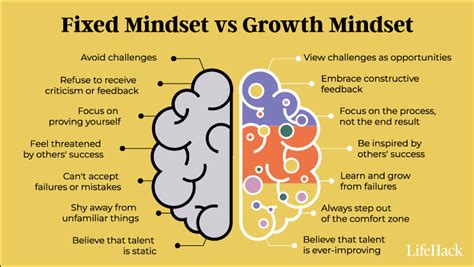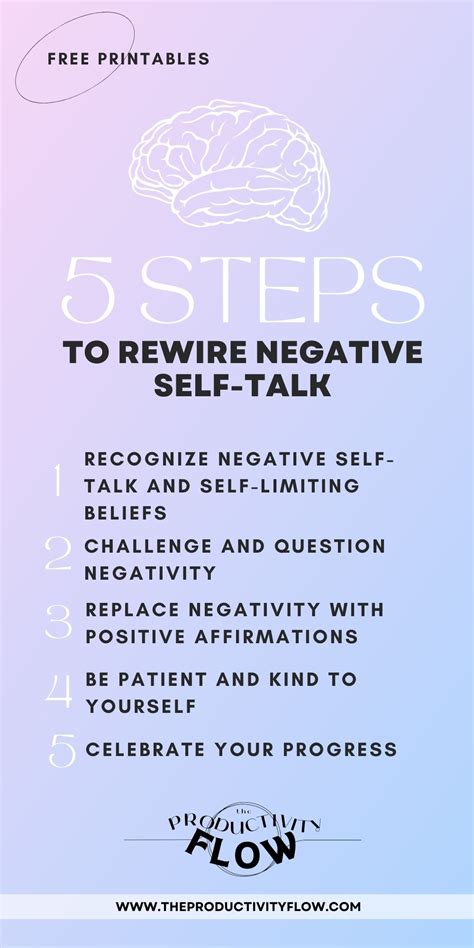Our inner voice, often a constant companion, profoundly shapes our perception of the world and our capabilities. For many, this internal monologue can lean towards negativity, fostering self-doubt and hindering progress. However, this isn’t an unchangeable fate. By consciously applying the principles of a growth mindset, we can learn to reframe negative self-talk, transforming it from an obstacle into a powerful catalyst for personal development and resilience.
This article will explore the nature of negative self-talk, illuminate the power of a growth mindset, and provide actionable strategies to shift your internal dialogue, empowering you to embrace challenges and foster continuous learning.
Understanding the Grip of Negative Self-Talk
Negative self-talk manifests in various forms: “I’m not good enough,” “I’ll never succeed,” “Why bother trying?” These pervasive thoughts can erode confidence, fuel anxiety, and create a fixed mindset where perceived failures are seen as intrinsic limitations rather than opportunities for growth. This internal critic often stems from past experiences, societal pressures, or ingrained patterns, creating a self-fulfilling prophecy that can paralyze action and stunt potential.
Recognizing the patterns and triggers of your negative self-talk is the first crucial step towards disarming its power. Is it triggered by stress, social comparison, or specific tasks? Becoming an observer of your thoughts, rather than a prisoner to them, paves the way for change.

The Transformative Power of a Growth Mindset
Coined by Dr. Carol Dweck, a growth mindset is the belief that abilities and intelligence can be developed through dedication and hard work. In contrast to a fixed mindset, which assumes qualities are static, a growth mindset views challenges as opportunities to learn and grow, failures as temporary setbacks, and effort as the path to mastery. When applied to self-talk, this means viewing your internal dialogue not as a reflection of immutable truth, but as a mutable narrative you have the power to rewrite.
Embracing a growth mindset means understanding that your brain is like a muscle that can get stronger with exercise. It encourages a focus on process over outcome, learning over perfection, and resilience over surrender. This shift in perspective is fundamental to transforming negative self-talk.

Actionable Strategies to Reframe Your Inner Critic
Transforming ingrained thought patterns requires consistent effort and a clear strategy. Here’s how to begin reframing your negative self-talk into a growth-oriented dialogue:
- Identify and Acknowledge: When a negative thought arises, don’t suppress it. Instead, label it: “I’m having the thought that I’m not capable.” This creates distance between you and the thought, allowing you to observe it without judgment.
- Challenge the Thought: Ask yourself: “Is this thought absolutely true? What evidence do I have to support it? What evidence contradicts it?” Often, negative self-talk is based on assumptions or past feelings, not current facts.
- Reframe with Growth-Oriented Language: This is the core of the transformation. Replace absolute, fixed statements with flexible, growth-oriented ones.
- Instead of: “I can’t do this.” → Reframe: “I haven’t mastered this yet, but I can learn how.”
- Instead of: “I made a mistake; I’m a failure.” → Reframe: “That didn’t go as planned; what can I learn from this experience?”
- Instead of: “This is too hard.” → Reframe: “This is challenging, and challenges help me grow.”

- Practice Self-Compassion: Treat yourself with the same kindness and understanding you would offer a friend. Negative self-talk often comes from a place of harsh self-judgment. Acknowledge your struggles, offer yourself encouragement, and understand that imperfection is part of the human experience.
- Focus on Effort and Process: Shift your focus from the outcome to the effort you’re putting in and the process of learning. Celebrate small improvements and the dedication you show, regardless of immediate results. This reinforces the idea that progress is a journey, not just a destination.

Sustaining the Shift
Reframing negative self-talk isn’t a one-time fix; it’s an ongoing practice. Consistency is key. Daily mindfulness, journaling about your thought patterns, and regularly reviewing your progress can help solidify these new neural pathways. Surround yourself with supportive individuals who embody a growth mindset, and actively seek out new learning opportunities that push you slightly beyond your comfort zone.
Remember, setbacks are inevitable. When negative thoughts creep back in, don’t see it as a failure. Instead, view it as an opportunity to apply your reframing strategies once more, reinforcing your commitment to a more positive and growth-oriented internal narrative.
Conclusion
Your inner dialogue wields immense power over your life’s trajectory. By consciously engaging with a growth mindset, you can dismantle the limiting beliefs fostered by negative self-talk and cultivate an internal coach that encourages, inspires, and propels you forward. This journey requires patience, practice, and self-compassion, but the rewards – increased resilience, enhanced confidence, and a more fulfilling life – are immeasurable. Start today by listening to your inner voice and choosing to rewrite its narrative, one growth-oriented thought at a time.





